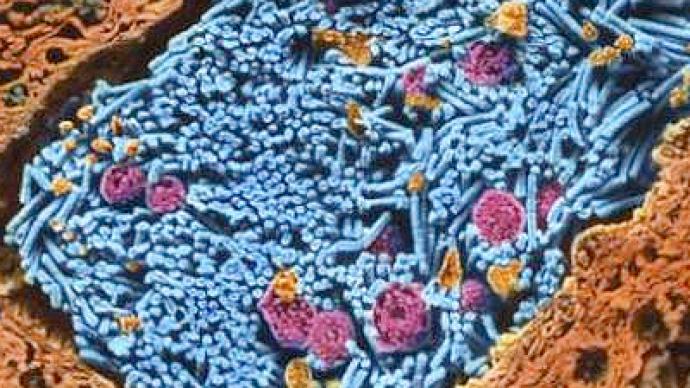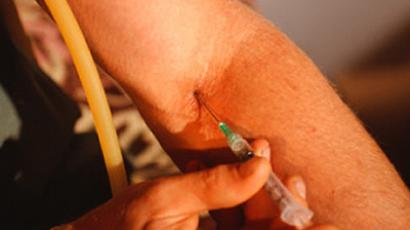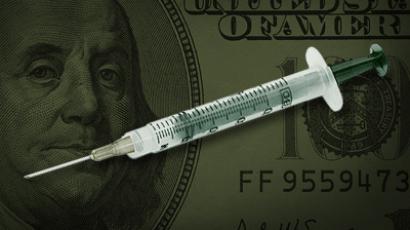Anthrax drug death sparks fear of Europe-wide pandemic

A drug addict in Blackpool, UK, died from an anthrax infection, sparking concerns of a pan-European outbreak of the rare disease.
Medical experts suggested that the death was caused by contaminated heroin, Reuters reported. The incident comes in the wake of similar anthrax outbreaks in Europe. The Blackpool infection is the only fatal case thus far.Since June, three incidents were recorded in Germany, two in Denmark and one in France. A heroin addict was also hospitalized in Scotland a month ago.“It's likely that further cases among PWID [People Who Inject Drugs] will be identified as part of the ongoing outbreak in EU countries. The Department of Health has alerted the NHS of the possibility of people who are injecting drugs presenting to emergency departments and walk-in clinics, with symptoms suggestive of anthrax” Dilys Morgan, an expert at the UK Health Protection Agency (HPA) told the Guardian.Anthrax is an infectious disease caused by the Bacillus anthracis bacteria. Infection in humans is rare, usually involving the skin, gastrointestinal tract or lungs. Anthrax commonly affects animals such as sheep and goats, but humans who come into contact with infected cattle may also become infected. People traditionally considered to be at high risk of anthrax infection include farm workers and veterinarians.Since 2009, drug users have also come into contact with the deadly bacteria. A wave of 124 anthrax infections swept the UK in 2009 and 2010, resulting in 19 deaths. Scientists traced the outbreak to an infected goat in Turkey, which was used to transport heroin to Europe. There are fears that the batch responsible for the current incidents could be linked with the 2009-2010 cases, Wired magazine reported.The UK healthcare system has responded to the potential threat by posting public warnings, and increasing national educational programs that explain the dangers of the rare bacteria and drug use.The disease, which has a death rate of up to 75 percent once contracted, “can be cured with antibiotics, if treatment is started early. It is, therefore, important for medical professionals to know the signs and symptoms to look for, so that there are no delays in providing the necessary treatment," Morgan said.















